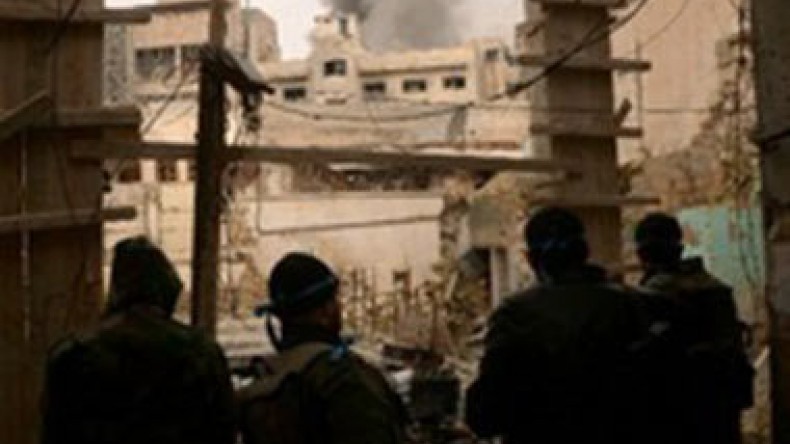
Bashar will be removed with arms – expert
Here, we present an interview of Irdiplomacy.ir with Dr. Ahmad Naghibzadeh, a university professor.
- More than two years have passed since the beginning of the crisis in Syria and everyday more people are being killed in this country. How would you evaluate the EU’s policy regarding the Syrian crisis? Does Europe basically pursue intervention in this crisis?
- Europe’s intervention in Syria is part of its policy in the Middle East. Bush pursued the policy of unilateralism in international and regional crises. This is while Obama has pursued the policy of multilateralism on his foreign policy agenda. Therefore, Obama, contrary to Bush, has accepted Europe’s cooperation in this region and Europe is also ready to play its role and welcomes it. The rest are war tactics.
- What is the reason behind the recent decision made by the EU to lift the arms embargo on the Syrian opposition?
- When the crisis began in Syria, the West believed that Assad’s opponents would gradually dominate Syria. But within the past few days, the government forces were able to regain control of some regions and strengthen their position by using militia forces. Now, in response to the advances of the Syrian government, Europe has decided to take measures to change the balance to the benefit of the government’s opposition. The delivery of arms to the opposition by the European countries is in line with the same objective.
- France and Britain insisted on making this decision while some countries disagreed with it. Why did they insist on this matter?
- Countries like Austria, Finland, the Czech Republic, the Netherlands, Belgium, and Sweden expressed their opposition to this issue. But due to the mentioned reasons, the general decision of the European Union is for Bashar Assad’s opposition to win in Syria and since Britain and France lead this issue, it is natural for them to insist more.
- Some countries in Europe state that this measure should not be taken and arms should not be sent until the international peace conference in Geneva is held next month. How effective, in your opinion, will this conference be in solving the Syrian crisis?
- This is also a conservative approach where some assume that Bashar Assad might accept the situation, but Britain and France, which are more realistic, know that no agreement will be reached and it is better that they do whatever is necessary.
- What will happen if the EU intervenes in the Syrian crisis and sends arms to Bashar Assad’s opponents?
- What is certain is that the West is determined to remove Assad. Although the delivery of arms to Bashar Assad’s opponents by the EU might increase the killings and bloodshed, it might also accelerate the removal of Bashar Assad. Incidents in Syria will be intensified from now on.
- Therefore, how do you see the future of Syria considering the Geneva-2 Conference?
- As I mentioned before, the possibility of Bashar Assad ruling Syria in the long run has ended. What is happening today is the trend of delegitimizing the government of Bashar Assad. Based on statistics provided by international organizations, more than 80,000 people have, hitherto, been killed in this crisis and this issue prepares the ground for the intervention of foreign forces. But the presence of forces affiliated with al-Qaeda in the Syrian crisis has caused the West not to be upset about the prolongation of this crisis because these forces would be weakened as a result. But what is certain is that the Syrian crisis is becoming more complicated everyday and the possibility of Bashar Assad remaining in power is becoming weaker. We should wait and see when this trend is going to stop.
Newsfeed
Videos






























